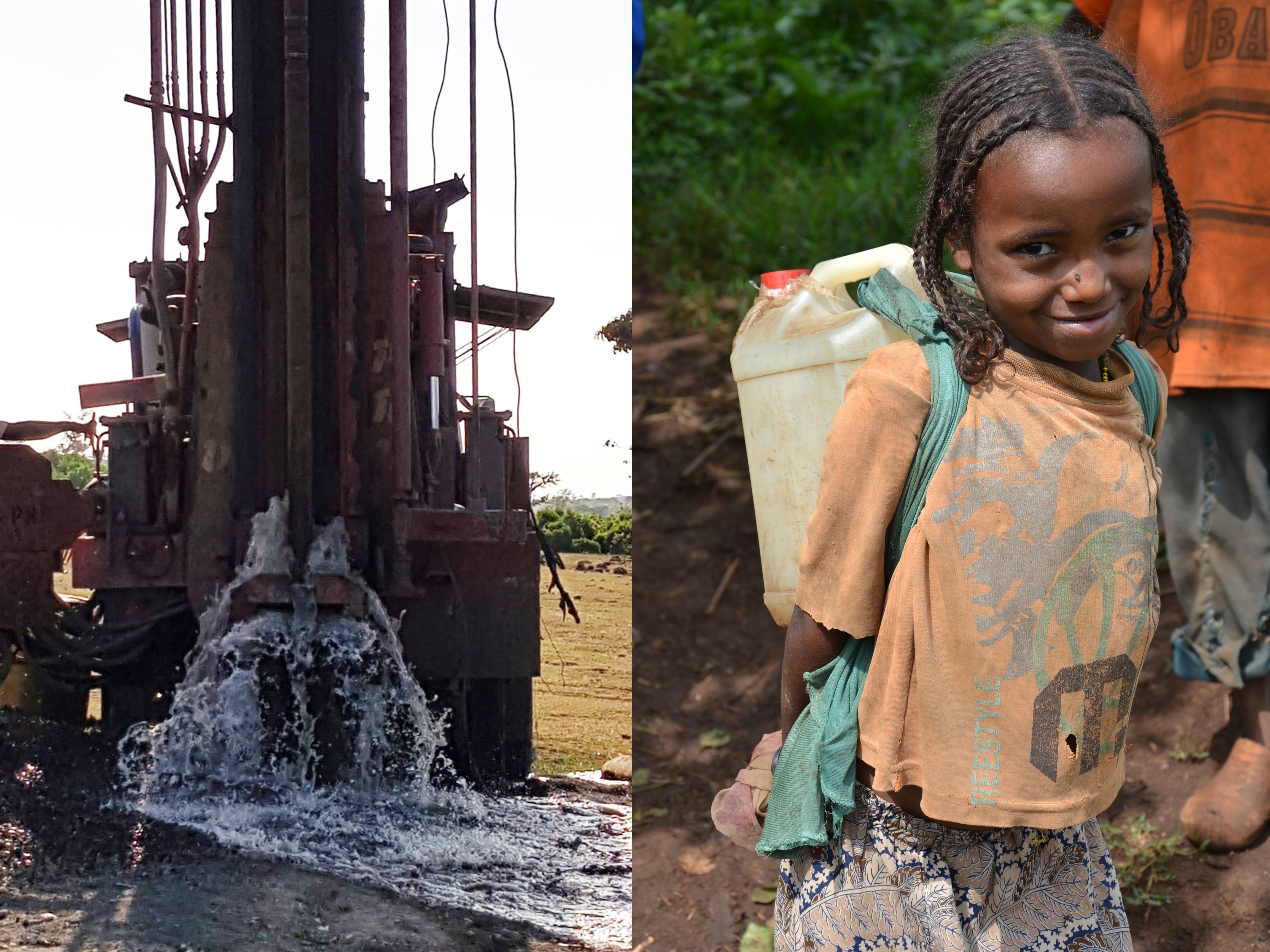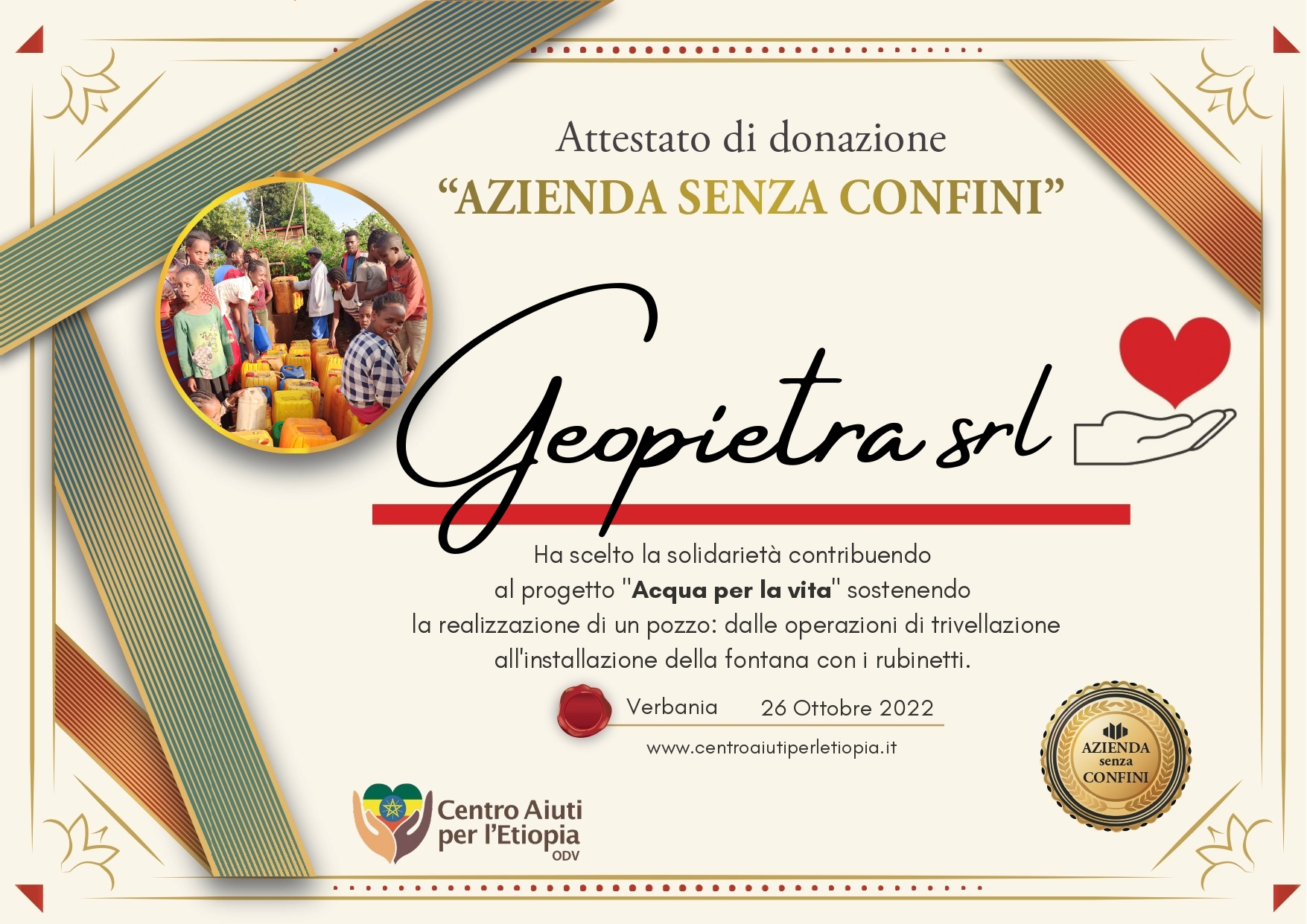Thousands of children are asking for one very simple thing:
to have the right to live.
Much has been done, much still remains to be done.
Centro Aiuti per l'Etiopia ODV is a non-profit voluntary association, founded by Roberto Rabattoni, which has been fighting every day against all forms of poverty in Ethiopia since 1983. It promotes development, education and social-health assistance with concrete, verifiable interventions that primarily meet the needs of the local population.
In Geopietra® we have learnt from our traditions and today we work with the eyes of innovation: we believe that everyday action creates the change we want to see in the world to come. Health, education, work and affection are for Geopietra® the basis for supportive development of the new generations in need. “Water for Life” project, in cooperation with Centro Aiuti per l'Etiopia association, is a great opportunity to become an active part in improving the quality of life of some Ethiopian communities.
The value of this project is twofold: it means not just donating to an entire community a water supply system capable of ensuring a fundamental right, but it also means allowing the local inhabitants access to safe and drinkable water. These achievements are the prerequisite for freedom from poverty and disease, offering new hope for a better future. Moreover, due to climate change triggered by the excessive emission of CO2 by the richest countries, the vital importance of water is beginning to be perceived and it’s now mandatory to become more careful and sensitive in its use, also to help those who do not even have the possibility of having it for mere survival.

VITAL NOW MORE THAN EVER
The coronavirus has also struck Ethiopia, putting millions of people at risk: as we know, to prevent its spread, it’s important to respect simple practices such as washing hands, wearing masks and maintaining social distancing. As in most African countries, here chronic water shortages have always unfortunately favoured the spread of viruses: without clean, drinkable water sources, the essential element for adequate protection is missing. Now securing this right has even greater meaning: without water, no virus can be stopped.
In this country, just over half of the population uses drinking water, and despite the increase in distribution achieved in recent years, the number of people without access to this basic commodity is one of the highest in the African continent. In many areas of Ethiopia, around 46% of the population takes water from unhealthy puddles, streams or rivers. In the same streams crossed by animals or used for drinking, people can be seen washing or laundering clothes. Women and little girls take care of carrying water from the river to their homes, often travelling several kilometers with heavy tanks. In the case of the youngest, this task doesn’t allow them to attend school. In “tukul”, their traditional dwellings, water is not boiled: firewood is a precious commodity and must be spared. Consequently, the health risks associated with the use of non-drinking water, contaminated by parasites or disease-carrying insects, are numerous. Cholera, hepatitis, typhus and diarrhea cause more infant mortality than AIDS, malaria and tuberculosis combined.
THE PROJECT
In order to ensure access to drinking water, especially in rural areas, Centro Aiuti per l’Etiopia association is committed to building wells or rehabilitating them. The first well was built in 1985 in the village of Owiatiè: many others followed, 11 just during the period 2005-2007. These interventions extensively involved the local communities in all phases of implementation, so that the beneficiaries are in charge of operation and maintenance. In order to find water, it’s also necessary to excavate sometimes up to 200 meters, so the drilling has to be entrusted to specialised companies. The well is then delivered to the population equipped with a power generator, pump, piping, collection tank and a fountain with several taps for distribution.
The water supply is sometimes indispensable when the hydrogeological study advises against excavations in the vicinity of villages, due to the lack of underground aquifers, or when the beneficiary population is distributed over a large territory, with inhabited areas far apart. In such cases, several distribution points (fountains equipped with several taps) are built along the water network, located close to the most populated places. Locally purchased materials (concrete, sand, stones and gravel) are used for their construction.






